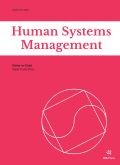Authors: Belussi, Fiorenza
Article Type:
Research Article
Abstract:
This paper studies the genesis and growth of two Italian industrial districts specialised in leather upholstered furniture. The first is of recent formation and is located on the border between two regions, Basilicata and Puglia, in the South of Italy. The second, which began during 1970s, is based in Emilia–Romagna in the area around Forlì. Both are specialised in upholstered furniture: sofas, armchairs, and others small items related to these products. The Forlì case resemble the typical Marshallian district, where, over time, a local system of small-specialised producers has formed. The case of Forlì represents a typical path dependent process.
…Here, a certain industrial structure, once favourable conditions has allowed it to emerge, has tended to reproduce itself, following over time the same pattern of interactions. Low levels of learning among firms is found. They use the local knowledge, historically produced within the area with little absorption and elaboration of external knowledge. On the contrary, the case of Matera–Altamura–Santeramo represents a quite new agglomeration in a rapidly growing industrial network, made up of large and medium size units, in which firms have activated a process of creation of new contextual (and localised) technical knowledge. Here local firms show a notable propensity toward generative learning (new knowledge is absorbed from the outside and combined with the existing local knowledge). Obviously, not all firms in the district are innovative, but a few of them are (particularly certain dominant final firms that head large production networks). While agent proximity favours imitative behaviours, over time, the propagation of knowledge in Forlì has socialised craft-based skills. In contrast, in Matera–Altamura–Santeramo, the existence of a Schumpeterian-driven process, has accelerated the diffusion of new knowledge, stressing the dynamics of an endogenous growth process internally generated by knowledgeable entrepreneurs. A thick network of hierarchical firms has worked as an accelerator of technical change.
Show more
Keywords: Path dependency, industrial districts, endogeneous growth, knowledge generation
DOI: 10.3233/HSM-1999-18209
Citation: Human Systems Management,
vol. 18, no. 2, pp. 161-174, 1999
Price: EUR 27.50





